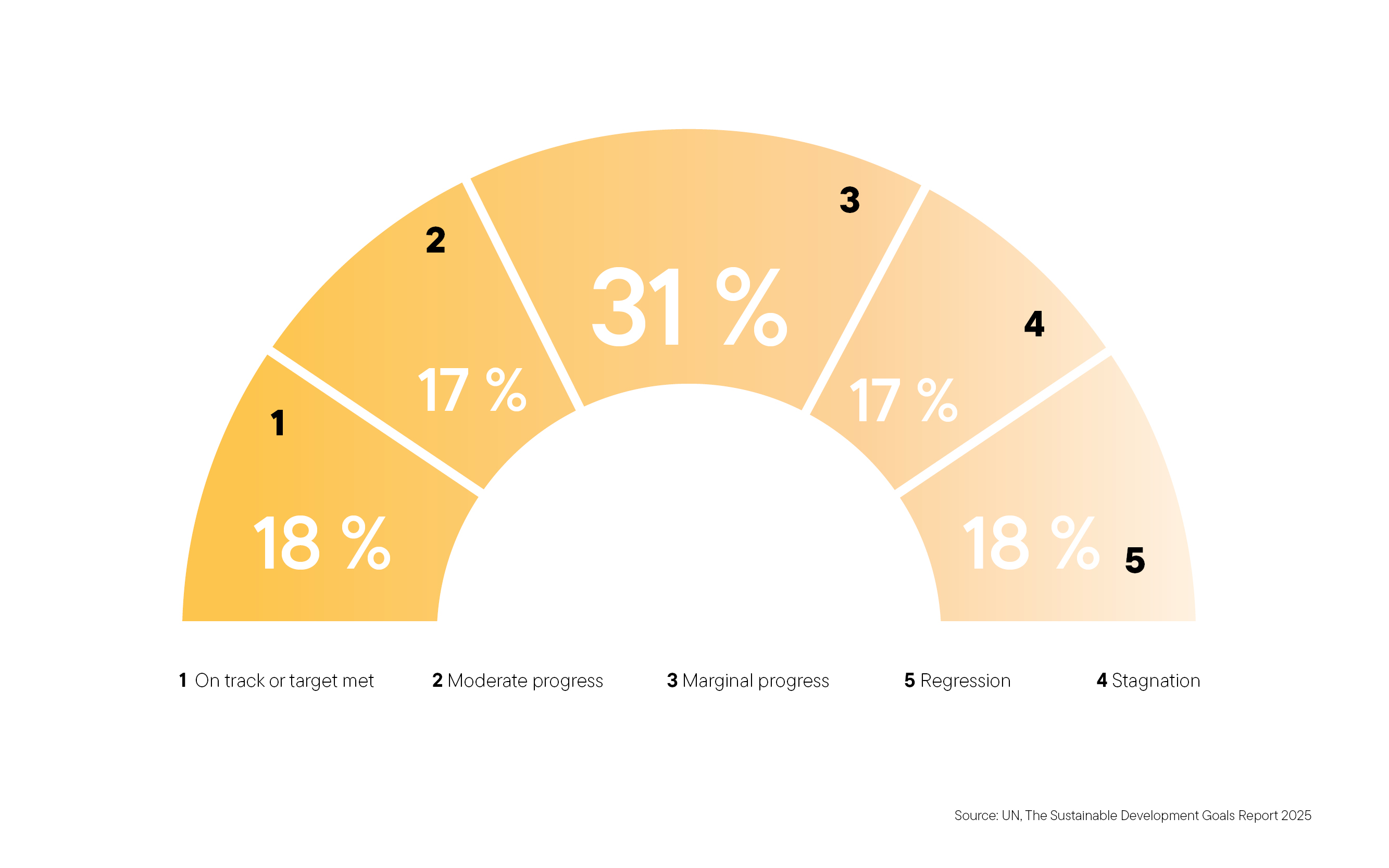Local government
“More generous than you would think”
The first city to introduce PB was Porto Alegre in Brazil in 1989. Why was Latin America the pioneer?
Of course, PB wasn’t invented there by chance. The idea was born when Argentina, Brazil and Chile became democracies after the dictatorships of the 1970s. Local authorities had served as the extended arms of the dictators for a long time, so they were now struggling to regain people’s trust. Furthermore, there were specific tensions in Brazil, where mayors and councils were chosen in separate elections. Both sides often had quite different political ideas, and the mayors couldn’t implement measures because their councils voted against them. On the one hand, PB was needed to foster democracy, and on the other hand, it helped to bridge the divide between councils and mayors.
What was new about the approach?
Well, for the first time ever, it involved the people in discussing money, the core aspect of power.
Is PB about people voting on the budget?
Yes, it is, but there is much more to it. PB is obviously about giving people a say in drafting parts of public budgets, but voting is not the only thing that matters. A British think tank uses the term “entrust” – PB entrusts citizens with budget decisions. Building trust between government authorities and citizens matters very much, and so does dialogue among them. Many international institutions, even the World Bank, confuse PB with community-driven development. The latter is an approach development agencies sometimes take to bypass corrupt elites: they hand money directly to a community representative, so the beneficiaries themselves can decide how to use it. But unlike PB, community-driven approaches do not lead to a dialogue of citizens with government institutions.
But can common citizens really handle strategic and complex matters such as budgeting well?
The people seldom decide upon the whole budget. Public budgets usually consist of fixed expenses that cannot be changed – current expenditures and personnel, for instance – and variable expenses such as investments. In PB, people usually only decide on variable expenses. In some places, however, citizens have even cut expenditures or raised revenues.
They really raised revenues?
Yes, they did. Experts speak of a “virtuous circle”. It mostly occurs in Africa, but elsewhere too. Mayors from three different countries – Benin, Zambia and DR Congo – told me that their revenues rose thanks to PB. Since people now know what the money is used for, they are more willing to pay taxes. In some mining cities in Madagascar, moreover, PB allowed citizens and authorities to join forces and press the mining companies to actually pay the money they owe the local authorities by law. The companies did not use to pay, but now they do. In Peru some cities have invented a rights-and-duties mechanism. The lower a neighbourhood’s tax evasion is, the more money is allocated.
The Latin American model has been praised a lot. What it so special about it?
In Latin America, PB was created with a social aim: it focussed on the social gap between the elites and the poor, especially those living in slums. When the poor understood that, for the first time ever, they really had some influence, they became very active. PB was very successful: it helped to bridge social divides somewhat. At the World Social Forum in Porto Alegre in 2001, many social movements from around the world were quite interested in the approach, and so were donor agencies such as World Bank or Germany’s GTZ/GIZ. Of course, the original Porto Alegre model was modified in other places and expanded to include new approaches, but all variants of PB have one thing in common: people discuss the budget.
A common critique of PB as practised in Germany, however, is that especially the poor and less educated people hardly take part.
Well, if people don’t participate, it’s not because there is no space for their participation, but because that space is not designed properly. The authorities must monitor diligently which people are excluded. Poor people? Those with little free time because they are commuters or work full time? Immigrants? Authorities must take measures to involve all groups in a meaningful way.
Please give an example of a success story.
In Senegal, the local culture values the opinion of the wise, who are basically elderly men. So in general assemblies, the women and young men stay silent and wait for the important people to speak. To make PB meetings meaningful nonetheless, people are now divided into groups of women, young men and elderly men respectively. Afterwards, their decisions and opinions are negotiated by a “council” of representatives elected by the different homogenous groups. The council compiles the results and forwards them to the authorities. Unless PB takes care of cultural and social conventions, it is likely to reproduce social disparities, rather than easing them.
What else must municipal leaders keep in mind to successfully implement PB?
- First of all, the authorities must be serious about PB. There must be scope for discussing seriously every idea, even the most minoritarian one, and people’s decisions must be implemented. By involving experts from outside, the process can be improved. People must never get the impression that the municipality is only cherry-picking the most convenient ideas and disrespecting other proposals.
- Building trust takes time. Initial distrust is common on both sides, the citizens and the authorities. At first, the politicians tend to think that people are idiots, selfish and incapable of solidarity. So all too often they don’t want to give them much room for making decisions. They only recognise after some time that the people actually do have a sense of solidarity and often come up with innovative ideas. Often they will even volunteer work or funds for public investments. Municipal leaders shouldn’t be discouraged – PB usually starts small, but it will eventually grow bigger.
- Finally, authorities must understand that participation is costly. Money is needed for publications, for mobilisation and for facilitating meetings in a professional way that allows the voices of all social groups top be heard. If authorities want to reach out to immigrants, they may need cultural mediators and interpreters. The costs of PB may seem high, but they pay off in the long run.
But aren’t people really too egoistic and selfish to decide responsibly?
In the 15 years I’ve been involved in PB matters, I’ve had very many positive surprises. In the Dominican Republic, people donated some of their land to the municipality for free, so a park could be built. People are more generous and their sense of solidarity is stronger than you would think. But authorities have to stimulate the exchange. If people stay in privacy, they tend to be more egoistic. Some PB approaches, for instance in Germany, merely ask people to indicate their individual preferences via the internet, so they don’t actually discuss anything. And they don’t learn to listen to each other’s perspectives. Other PB approaches put much more emphasis on bringing people together and building consensus. In those cases, voting is only a last resort in case people can’t agree after long discussions.
But don’t people manipulate one another in huge meetings?
A person familiar with PB said once: “It’s easier to bribe a mayor and 20 council members than to corrupt an assembly of thousands of people.” This is quite true. I won’t deny that there are risks however. In Brazil, drug lords quite often try to influence local politics. They may oppose a slum improvement programme, for instance, because they don’t want the police to come into their area. Slum people may indeed decide according to their drug lords’ wishes because they depend on them for their livelihoods. But they won’t repeat that mistake at a later point in time, once they have seen all money being invested somewhere else with good results such as better housing and a higher standard of life.
You just mentioned disadvantages of the internet, but don’t new information and communication technologies (ICTs) offer advantages too?
Well, they can reduce costs and provide participation opportunities for people who can’t attend meetings. Some municipalities in Portugal, in the DR Congo and in the Dominican Republic use Short Messaging Service (SMS) for voting. SMS can also serve as a good monitoring tool. People send a message with the code of a project to the authorities, and they get a status update via SMS, for instance: “Work started last week”. The authorities, however, must give the people incentives to become active beyond the virtual world. For example, those who share PB posts on their personal facebook wall could get more votes in the next assembly, so internet activism would lead to real-world advantages.
In which places do you recommend implementing PB?
Let me re-phrase your question. The relevant issue is: How do you design PB in order to reach your specific goals? If the goal is to re-build trust after years of corruption – as in cities in Italy, Spain and Portugal, for instance – the focus must be on transparency, monitoring and stringent implementation. However, if the idea is to create more social links between the administration and the people – as in Swedish municipalities, where public institutions are generally run quite well –, you have to focus on personal contact. It’ll make sense to organise meetings that mix the seriousness of the decision-making with the pleasure of being together.
Giovanni Allegretti is a senior researcher at the Centre for Social Studies of Coimbra University in Portugal.
giovanni.allegretti@ces.uc.pt








